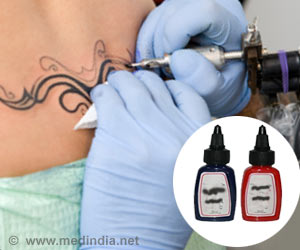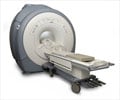Is it safe to perform MRI scan in tattooed persons? Yes, it is safe, reveals a new study and the risk of side effects is low for persons with tattoos who undergo MRI (magnetic resonance imaging) scans.
Highlights:
- Persons with tattoos can safely undergo MRI scanning and the associated risk is very small finds a recent prospective study in the UK
- Magnetic resonance imaging (MRI) scans are routinely performed to investigate patients including tattooed persons but the safety factor of MRI scanning in tattooed persons has not been established
- Current recommendations advise weighing the risk-benefit balance before doing an MRI scan in tattooed persons for diagnosing a specific disease
Weiskopf said, "Based on our investigations, we can now state, on the basis of meaningful numbers, that if a tattooed individual is scanned under the conditions tested in the study, the risk of side effects is very small."
Read More..
Establishing Safety of MRI Scanning in Tattooed Persons
- The study enrolled 330 participants and examined a total of 932 tattoos before and after MRI scanning
- The size, location of tattoos and colors used in the tattoos were recorded. Exclusion criteria included tattoos bigger than 20 cms and if more than five percent of the body was covered in tattoos
- Most of the ink used for tattooing was black ink but colored tattoos were also noted
- Most participants were from Europe but there were participants also from America, Asia and Australia
- The MRI scanners employed for the project had a static magnetic field strength of three Tesla, which is similar to that used in many centers nowadays
- Under the study conditions, most of the participants reported no adverse effects. There was one case of reported tingling sensation on the tattoo site but the symptom disappeared in 24 hours without any treatment
Why Does MRI Carry Potential Risk in Tattooed Persons?
The MRI scanner uses strong magnets and generates a strong magnetic field to produce detailed images of various tissues in the body to determine the presence of disease. Because of the strong magnetic field, MRI should not be performed in persons with metallic implants (which may be magnetic) such as a heart pacemaker.Therefore, if the tattoos contain iron-based pigments (which are magnetic) it may be potentially risky. The iron pigments in the tattoo can interact with the magnetic field of the MRI scanner and produce a pulling sensation on the tattooed skin and cause pain and discomfort.
However, a more serious side effect due to the pigments is if they are conductive in nature. If the resonating frequency of the scanner matches the resonance lengths of conductive structures in the tattoos, the tattoo will absorb much of the high-frequency energy which will normally spread out equally. When this happens, the site of the tattoo heats up and burns can occur.
Summary
The findings of the study suggest that under the conditions used during the study, MRI scanning is safe for tattooed persons and can be used in clinical settings as well as future research.References:
- Safety of Tattoos in Persons Undergoing MRI - (https://www.nejm.org/doi/10.1056/NEJMc1811197)
Source-Medindia











